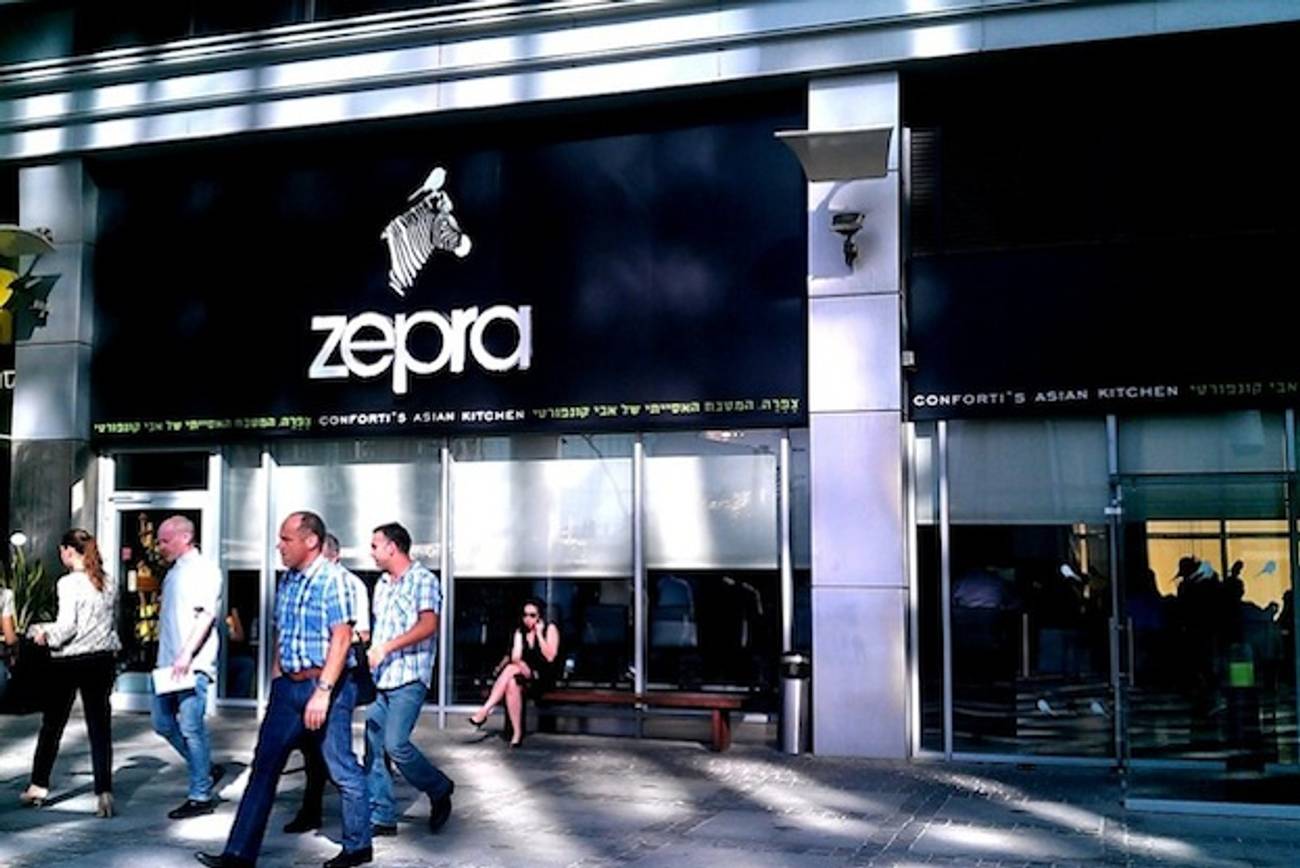Tel Aviv Hotspot Serving Pork in Beef Dishes?
Lawsuit alleges popular Asian-fusion restaurant Zepra misled customers




The throngs of diners who have frequented the popular Tel Aviv Asian-fusion restaurant Zepra since it opened in 2007 are in for an unpleasant surprise: that tasty beef dish they savored might actually have been pork. Late yesterday, the Israeli website Calcalist broke the story of an attempt by a group of lawyers to file a class action lawsuit against the restaurant, on behalf of anyone who unknowingly ate pork there, demanding a full refund and NIS 5,000 per customer (roughly $1,400).
Nataly Swery, the woman behind the alleged exposé, said she had been a regular customer at Zepra until her ex-boyfriend, who had worked in the restaurant’s kitchen, let her in on what he said was an open secret amongst employees. Namely, that the restaurant regularly substitutes cheap pork, camouflaged with copious seasoning, for more expensive beef and veal in several of its dishes—in stark contrast to the menu’s descriptions and without ever bothering to let the customers know. Swery, disturbed and disgusted, returned with a private investigator, who collected “beef” samples and submitted them for genetic lab testing. The results, she said, were clear: pig meat.
If Swery’s allegations turn out to be correct, Zepra will have succeeded in offending a very secular clientele—on religious grounds. In the annals of Israel’s arts culinaires, pork is a fairly new addition and, for many Jews and Muslims, still very much a taboo. In fact, for the first few decades of the State’s existence, pork was almost impossible to come by. With the massive waves of immigration from the Former Soviet Union in the 1990s, though, the demand grew dramatically. While it’s still against the law to raise pigs for slaughter here (save for a few predominantly Christian-Arab villages), imported pig meat—alongside “reserves” left over from so-called scientific research conducted by some kibbutzim—is now a staple of non-kosher groceries and kitchens, along with a growing number of restaurants, Zepra included. And yet, while many completely secular Israelis will attend a blatantly non-kosher restaurant that serves trayf, they will still abstain from ordering it, oftentimes even more than they would avoid bread over Passover.
Avi Conforti, the wildly successful chef and restaurateur behind Zepra (along with gourmet burger chain Moses, among other establishments), told Ynet that this was just a case of someone trying to get rich off his back, but he did not deny the use of pork. When in 1995 the newspaper Maariv exposed that Israeli dairy company Tnuva had—without informing the public—added silicone to its milk to prevent excessive froth, the courts awarded a class action lawsuit of nearly 40 million shekels purely because of how gross people found that to be. With the “ugh-factor” even higher in the Zepra case, Swery’s lawyers hope to demonstrate a blatantly misleading infringement on diners’ autonomy. The pork taboo, even in Israel’s most secular city, is still a force to be reckoned with.
Tal Kra-Oz is a writer based in Tel Aviv.